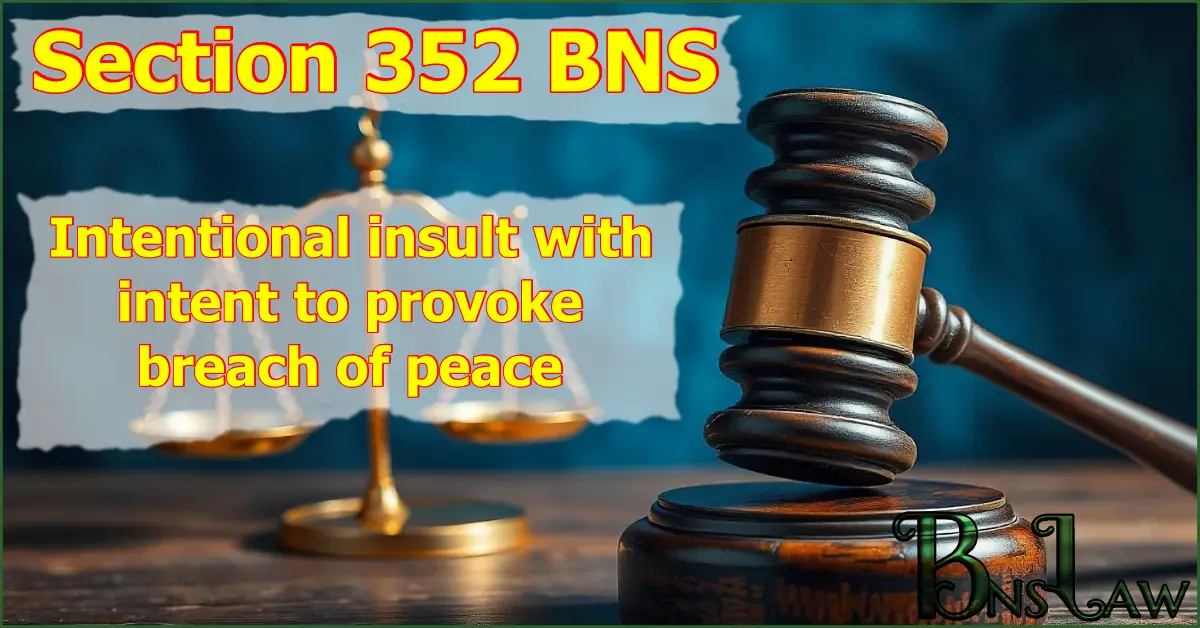Section 352 BNS
Whoever intentionally insults in any manner, and thereby gives provocation to any person, intending or knowing it to be likely that such provocation will cause him to break the public peace, or to commit any other offence, shall be punished with imprisonment of either description for a term which may extend to two years, or with fine, or with both.
READ OTHER SECTIONS OF CHAPTER XIX — OF CRIMINAL INTIMIDATION, INSULT, ANNOYANCE, DEFAMATION, ETC.
| Section No. | Section Title |
|---|---|
| 351 | Criminal intimidation. |
| 352 | Intentional insult with intent to provoke breach of peace. |
| 353 | Statements conducing to public mischief. |
| 354 | Act caused by inducing person to believe that he will be rendered an object of Divine displeasure. |
| 355 | Misconduct in public by a drunken person. |
| Of Defamation | |
| 356 | Defamation. |
| Of Breach Of Contract To Attend On And Supply Wants Of Helpless Person | |
| 357 | Breach of contract to attend on and supply wants of helpless person. |
FAQs of BNS Section 352
-
352 BNS punishment and fine
Punishment and fine under Section 352 of the BNS: Imprisonment for 2 years, or fine, or both.
-
352 BNS cognizable or not
The offence under Section 352 of the BNS is non-cognizable.
-
352 BNS bailable or not
The offence under Section 352 of the BNS is bailable.
-
352 BNS trial court
Offence specified in Section 352 of the BNS is triable by any Magistrate.
Important Points
- Cognizable Offences: These are offences where a police officer can arrest a person without a warrant.
- Non-Cognizable Offences: These are offences where a police officer cannot arrest a person without a warrant.
- Bailable Offences: These are offences where the accused can get bail from the police station itself. All bailable offences are listed in the First Schedule of the Bharatiya Nagarik Suraksha Sanhita (BNSS).
- Non-Bailable Offences: Offences in which bail is not granted directly from the police station but after hearing the case in the court, the judge decides when bail will be granted. All non-bailable offences are listed in the first schedule of the Bharatiya Nagarik Suraksha Sanhita (BNSS).
- In the above FAQ, “trial court” means the court that has jurisdiction to try the offence.
- In the above FAQ, the expression “Magistrate of the first class” and “Any Magistrate” does not include Executive Magistrates.
Read other Sections of the BNS
Reference Link: New Criminal Laws (BNS), Ministry of Home Affairs







